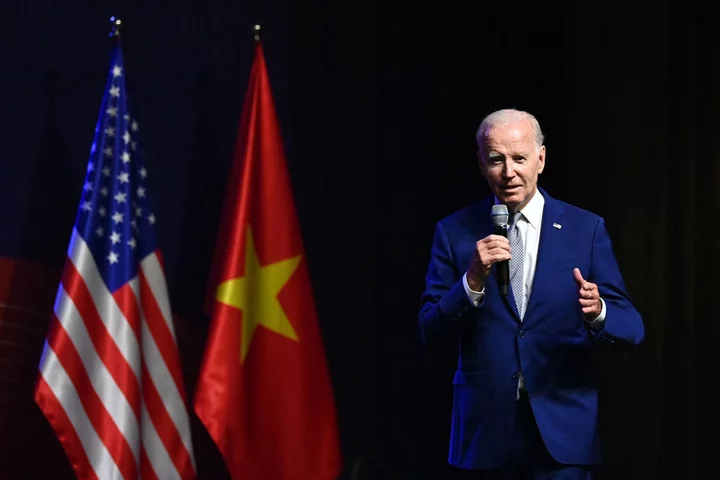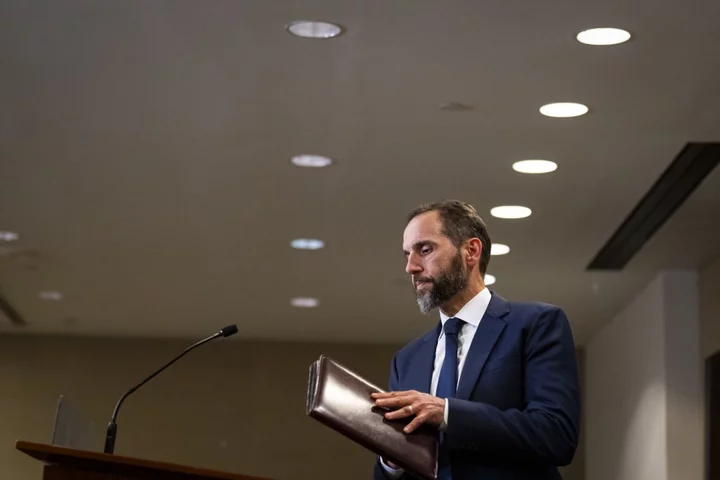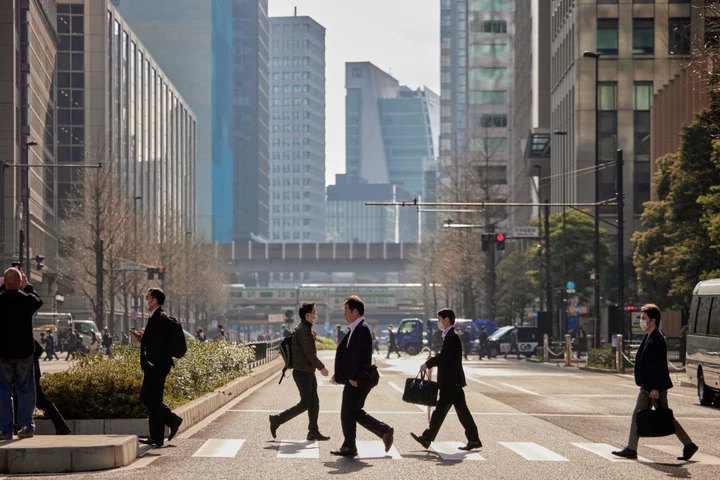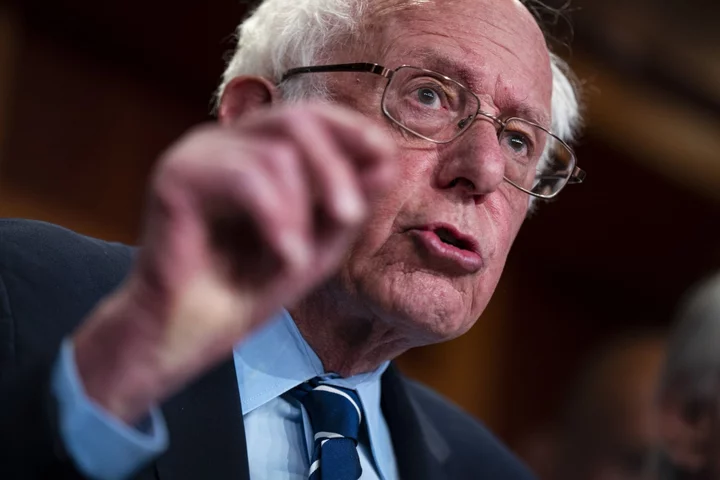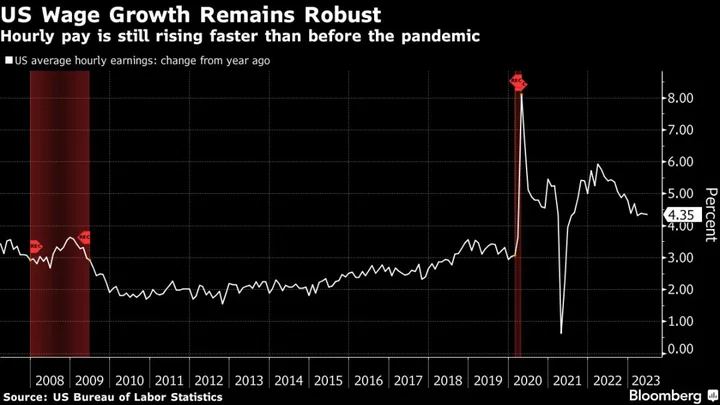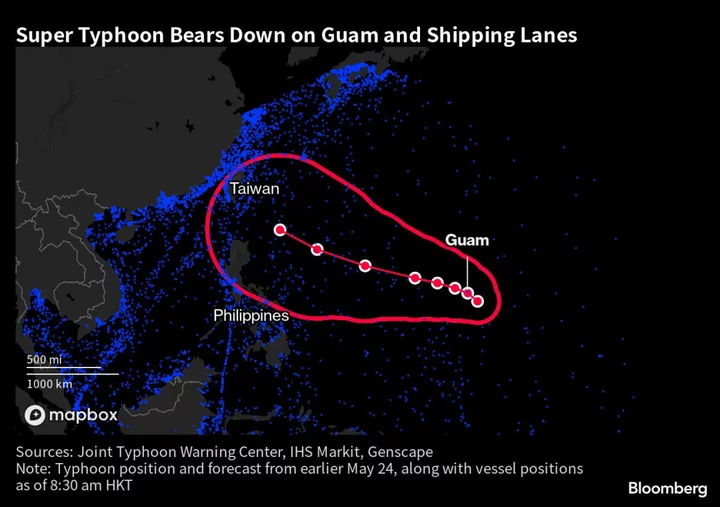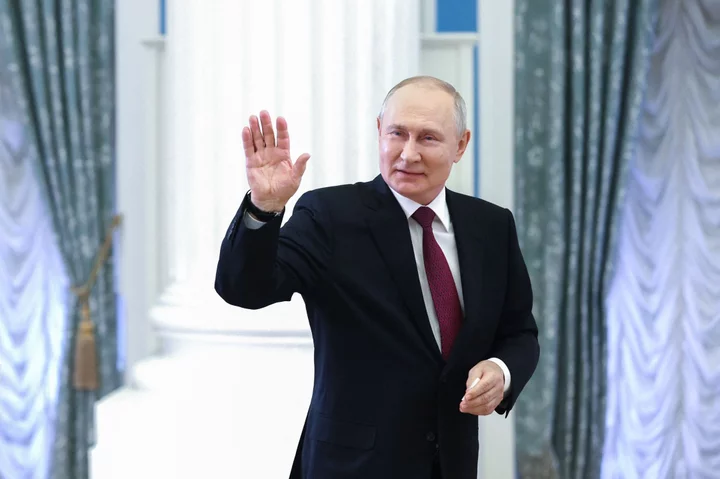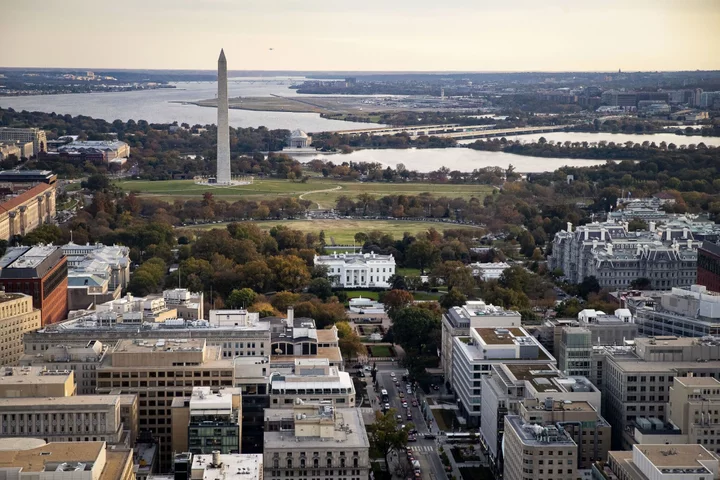President Joe Biden said China’s recent downturn could diminish any inclination by Beijing to invade Taiwan, adding that the country’s economic troubles have left his Chinese counterpart with “his hands full.”
The US president, who traveled to Vietnam on Sunday following a gathering of the Group of 20 leaders summit in India, said he had met with Chinese Premier Li Qiang while at the summit. Pressed on why he hasn’t met with Chinese President Xi Jinping in 10 months, Biden said Xi “has his hands full right now.”
The Chinese president opted not to attend the G-20 with no explanation given. The two leaders’ next best opportunity to meet will be at the Asia-Pacific Economic Cooperation summit in San Francisco in November.
Biden said China “has a difficult economic problem right now for a whole range of reasons that relate to international growth and lack thereof, and the policies that China has followed.”
“I don’t think it’s going to cause China to invade Taiwan, matter of fact the opposite, probably doesn’t have the same capacity as it had before,” he added Sunday during a press conference in Hanoi.
Taiwan’s top emissary to the US, Hsiao Bi-Khim, called China’s slowdown “alarming” in an interview at Bloomberg’s Washington bureau on Friday. She added that the island should become “less vulnerable” to changes in the world’s second-largest economy.
Tech Tensions
The US president also addressed growing tensions between the world’s two largest economies over their technological ambitions.
China is seeking to ban the use of iPhones for state-owned enterprises — representing a blow to Apple Inc. and broadening previously announced restrictions that only targeted government agencies. In 2017, the US Congress passed laws restricting certain Pentagon networks from using equipment from Huawei Technologies Co. or ZTE.
“I’m not going to sell China material that would increase their capacity to make more nuclear weapons or engage in defense activities,” Biden said.
Huawei recently quietly revealed a mobile phone utilizing technology the US has sought to keep out of Beijing’s hands, questioning the efficacy of US chip restrictions.
The developments, which came just as Commerce Secretary Gina Raimondo was wrapping up a trip to Beijing and as Biden was preparing to leave for the Group of 20 leaders’ summit in New Delhi, could derail recent efforts by the US to thaw relations between the two countries.
The Commerce Department has begun an official probe into the advanced made-in-China chip housed within Huawei’s latest smartphone, though more information is needed to determine how the chip was produced and what, if any, action the US will take in response.
Biden emphasized Sunday that he had no intention of trying to contain or isolate the world’s second-largest economy.
“I don’t want to contain China, I just want to make sure that we have a relationship with China that is on the up and up, squared away, everybody knows what it’s all about,” he said.
Biden and Xi have not spoken since the G-20 summit in Bali, Indonesia in November 2022. That encounter spurred progress on US-China relations before a new round of strains, including over Taiwan, military encounters in the South China Sea, Biden’s export bans on semiconductor technology, and an alleged Chinese spy balloon that crossed the US, again chilled ties.
Recent months have seen increased communications between the two countries, with five US cabinet officials traveling to China for talks with their counterparts. Raimondo’s visit followed trips by Secretary of State Antony Blinken, Treasury Secretary Janet Yellen, climate envoy John Kerry, and CIA Director Bill Burns. It remains to be seen if any of the visits will result in concrete outcomes.
--With assistance from Justin Sink and Jordan Fabian.
(Updates with comments from Taiwan’s top US emissary in the sixth paragraph.)

